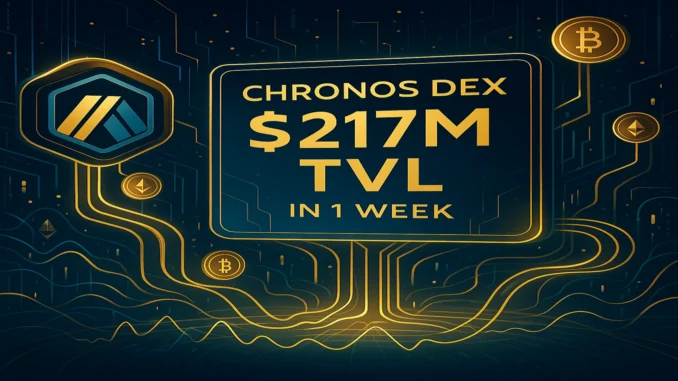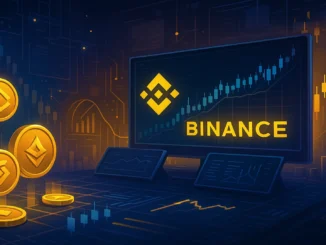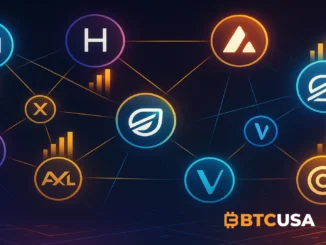
Chronos DEX Hits $217 Million in TVL After One Week
Decentralized exchange Chronos has set a new benchmark in the DeFi landscape, reaching $217 million in total value locked (TVL) on May 4 — only seven days after launching on the Arbitrum blockchain.
According to data from DefiLlama, this figure positions Chronos among the top ten decentralized exchanges by TVL, reflecting growing user confidence in Arbitrum-based DeFi protocols. In decentralized finance, TVL measures the total amount of assets deposited or staked within a protocol, serving as a key indicator of its adoption and liquidity strength.
Liquidity and Token Emissions Drive Growth
The rapid rise in Chronos’ TVL coincides with the start of “Epoch 1,” when emissions of Chronos’ native token (CHR) began flowing to liquidity pools. The event also marked the start of staking rewards for users, incentivizing participation in the platform’s ecosystem.
Chronos serves as both a liquidity provider and an automated market maker (AMM) for Arbitrum. Core liquidity pools currently include CHR/ETH, CHR/USDC, ARB/ETH, ETH/USDC, USDC/USDT, and WBTC/ETH, with millions of CHR tokens seeded into each pool to enhance trading depth.
Renewed Confidence in DEXs After FTX Collapse
The surge in activity for Chronos reflects broader market sentiment favoring decentralized exchanges following the collapse of FTX and other centralized platforms. “After FTX’s bankruptcy, the industry saw the real value of DEXs. Decentralization matters more than ever,” said Charles Wayn, co-founder of Galxe.
Bob Baxley, CTO of Maverick Protocol, added that decentralized platforms have proven their resilience and scalability: “Major DEXs often process more trading volume than Coinbase on some days. As regulation tightens, DEXs will continue to thrive.”
The Future of Decentralized Trading
DEXs are peer-to-peer marketplaces powered by smart contracts that allow users to trade cryptocurrencies directly without intermediaries. While they eliminate custodial risk, they still face challenges such as smart contract vulnerabilities and potential exploits.
Despite these risks, experts predict exponential growth as blockchain scalability improves and transaction costs decrease. “As networks like Ethereum continue to scale and gas fees fall, DEX activity will expand significantly,” said Brent Xu, founder of Umee.
Chronos’ explosive debut underscores how fast DeFi innovation is accelerating, with Arbitrum emerging as one of the most active networks for decentralized trading and liquidity creation.


